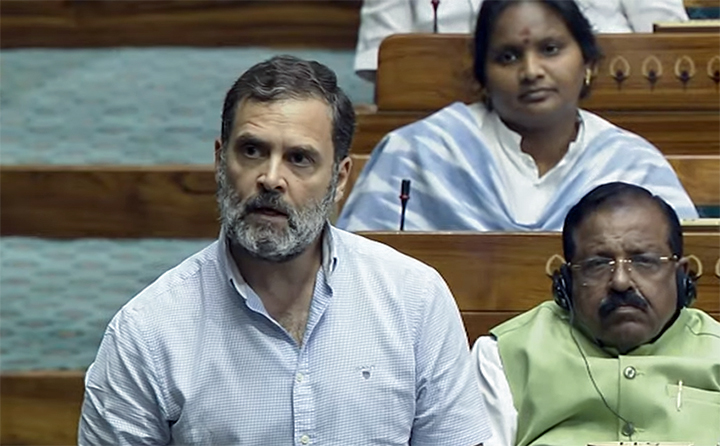
At a time when development, aspiration, India’s rise as an international power have entered the national discourse, a time when the nation has started taking baby steps towards a post-caste identity, the Opposition believes that it can pull the country back to the days of Mandal politics of the 1980s.
The recent caste census in Bihar and the call given by Rahul Gandhi of “jitni abadi, utna haq” (greater the population, greater the right), are not only regressive politics, but are designed to create street unrest by stoking the grievances of a section within certain caste groups.
Add to that the promise to remove the Congress government-implemented National Pension System of 2013, to bring back the ruinous Old Pension Scheme, and it’s almost as if the Opposition is determined to wreck the India growth story when they come to power—such is the desperation at the prospect of being denied the perks of power for another five years.
For regional parties such as the RJD and the Janata Dal United of Nitish Kumar, dividing Hindus along caste lines is a means to prove their relevance and justify their existence. But it does not behove a national party as the Congress to make caste the central pillar of its electoral strategy.
The “jitni abadi utna haq” call is a cynical attempt to woo the large OBC vote that the country has. A large chunk of the OBC vote has been shifting to the BJP in many states. To woo this vote base is a legitimate political aspiration.
But the problem arises in the manner Rahul is trying to woo them—it is exclusionary and discriminatory in nature. While then Prime Minister Manmohan Singh went to the extreme of saying “minorities have the first right to national resources”, Rahul Gandhi has gone to the other extreme. As Congress’ own leader, Abhishek Singhvi wrote on X on Tuesday, one had “to first completely understand the consequences of it.
It will eventually culminate into majoritarianism”. But then Singhvi deleted his tweet, probably at the insistence of his party. Singhvi was right. If this abadi-haq argument is taken beyond the social domain, then it essentially implies that religious minorities will get scraps, as Prime Minister Narendra Modi pointed out at a rally on Tuesday.
By the same logic, Rahul Gandhi should not have any problems if India is declared as a Hindu rashtra—it’s the right of the majority population after all. Also, where will this quota-express stop? This is not an argument against affirmative action, even though our Founding Fathers had wanted quotas to be in place for a limited period of time—ten years.
Successive governments have worked towards the uplift of marginalised communities through these quotas, which has had a positive impact on the socio-economic situation of certain caste groups, even though, arguably, the benefits have often gone to the creamy layer among the reserved categories—to people who are anything but marginalised. While the reservation system requires fine-tuning, what Rahul Gandhi is implying is the exclusion of certain groups, a situation where merit is killed, and a large section of the population is deprived of opportunities and rights.
Rahul’s policy will not promote equal opportunity. Instead it will be discrimination by law, where a large segment of the population is turned into second class citizens. This is ethically wrong and fundamentally undemocratic.
As for the promise to bring back OPS, even economists close to the Congress are appalled. From Montek Singh Ahluwalia to RBI Governor Raghuram Rajan, everyone has been warning against bringing back OPS, because there would be long-term implications for the country.
The government’s pension expenditure will become larger than its salary expenditure, which amounts to fiscal madness. Add to it the load of freebies promised, and India will be staring at bankruptcy and can forget about being the third largest economy in the world. Rahul Gandhi needs to put a stop to his irresponsible rhetoric and recklessly populist politics. It is the future of the country that is at stake here.